From Romania, Negur? Bunget released Om, often called their magnum Opus, in 2006. Its tone is medieval; the music is filled with interludes of dramatic chanting, old renaissance instruments and sparse keyboard sections reminiscent of
Burzum’s Hvis Lyset Tar Oss. Because of the way in which most of Negur? Bunget’s songs have strong forward drives in terms of rarely-repeating structures or relatively repetitive ones, their music is hard to get accustomed to. But there is quite a lot of greatness here and someone curious enough to listen to the over-an-hour album several times will be rewarded.
The production is crisp and clean but without sterile polish. The guitars shift in the mix a little on every few songs, but it’s done with intention as to allow other instruments the chance at spotlight. The keyboards are well-defined and smooth, the drums sharp and defined. Even the bass is quite audible for a black metal album and as a bonus we get to hear it go off on its own patterns underneath distorted guitars. The production really is quite well-done and really serves the music, and allows for good range in style—the music here can get away with a soft blanketing sound as well as a harsh one accentuated by a forefront instrument.
With this production, Om works to establish lone islands or pockets of very unique black metal with a great blend of crunch and war-ready sounds and soft, often hypnotic melodies. These songs seem to be mostly bookended by minimalist folksy world interludes, ranging from the empty-space intro that is nearly an A Cappella. The black metal itself is really quite powerful. The first black metal song here, Þesarul De Lumini, lasts twelve minutes. The band seems to play with atmospheric space a lot here, utilizing echoing and fading guitar riffs, often dipping under and over droning keyboard notes. The first clean riff during the intro, which is refrained later on in the song, is sublime. It’s a cold soothing melody one would almost expect to hear in a lullaby, and, in the context of an ever-changing piece of churning, mutating black metal like this, it seems to come out of nowhere and disappear with just as little warning, but it works so well because of its placement and fit with the music. Negur? Bunget often surprises me in the same way throughout the album, with subtle shifts that slowly take the song from wild beast to calm sea. The vocalist as well will change often from hoarse growls similar to Satyr or Silenoz early on in the careers of
Satyricon or
Dimmu Borgir, to his own brand of clean singing which in itself will go from standard singing to Gregorian chants, bellows, yells, and spoken word. The album could work no other way—it needs a vocalist with such stylistic range in order to sustain the range of the instruments. It’s a bit unfortunate that the clean vocals have more range than the growls, which infrequently change in pitch or tone, but the vocals are still quite strong.
The variety of songs is another strong point of the album. Although at times the interludes do seem to bog down the natural flow of the album a little, they themselves are quite good, and none are really alike. From the highly unsettling opening (Ceasuri Rele) of growling and yelling over a background of a single note being played on a keyboard, to the folk-heavy
Hora Soarelui with its odd flute and its occasional but savoury use of twelve-string guitars, one can already find plenty of variety. On first listen, after hearing the intro and Þesarul De Lumini, I could only assume that Negur? Bunget’s thing was to create wide-open soundscapes with drawn-out keyboard patterns that seem to blanket the other instruments like snow, having the guitar occasionally penetrate the minimalism with some interesting leads, similar to the style of, as I said before,
Burzum’s Hvis Lyset Tar Oss. But then Conoas Terea Tãcutã comes in and, without disrupting the tone of the songs before it, changes the instrumental layout as well as the approach to the songwriting in general by making the keyboards take backseat as supporters. In this song, guitars are in constant lead, and the riffs they deliver are bizarre and unique, blending into one another as they shift from traditional tremolo-picked stuff to riffs with widely-spaced notes that reverb around your speakers and your head, supported by unconventional percussive instruments and flutes here and there. It also features an incredible interlude that I would point to as a perfect example of how to push a song forward. The songs Negur? Bunget writes, at least on Om, seem to be made to elevate and swim in your head. They seem at most times to be air-thin and wispy (Conoas Terea Tãcutã, Þesarul De Lumini,
Hora Soarelui) , and at other times seem to crunch with a lot of meaty density and aggression that allows for some pretty intense headbanging moments (Inarborat, Dedeseptul, De Piatrã). This almost makes the songs of the album seem like events in a story, parts of a bigger chain. Since I can’t even begin to speak Romanian I can’t tell if that’s actually the case, though.
Listening to this album the first time can be a little rough and there seems to be too much to focus on or think about to really be able to give a strong opinion. But after repeat listens the golden moments of Om start to shine through and it becomes easier to adapt to the music each time it takes a sharp turn or twist. The instrumental shorter songs, which I once felt were overblown, come to be more appreciated, although I still can’t fully shake the feeling that a few of them go on for too long and somewhat bog down a nice continuance (for example, I still feel like I’m just waiting for something to happen when I listen to the intro of Inarborat, which later turns out to be quite heavy and aggressive anyway. Then there are interludes like Norilor and
Hora Soarelui which I find to be better-fitting. Overall, though, I find the album to be almost constantly entertaining despite its long run time. I think it’s one of the only albums that feel really fun and quite dark and pretty atmospheric at the same time. It’s another black metal album that works well as a winter-centered piece, bringing up imagery of deep forests half-buried in snow, wild storms and soft snowfalls, frozen landscapes empty of life. The album really is a good example of progression in songs, and is pretty much totally worth checking out for anyone into black metal. The album is very unique as well—I’ve never heard sections that would normally seem to clash awkwardly being used for such a strong tapestry of tangled, ever-changing riffs and wide-open atmospheres. The use of non-traditional instruments makes listening to this album unlike listening to most others. Negur? Bunget constantly demonstrates that they are able to demonstrate as much competence with them as with their traditional drums, bass and guitars.
I only have a few minor complaints. For one, as mentioned already, I feel a couple of instrumental interludes go on for a bit too long and a few intros and outros either need shortening or to be removed totally. The album also feels like it might have been a tighter package if it were a bit shorter. I could do without the track De Piatrã, although it isn’t a bad song per-say, it just didn’t seem to add anything to the album of its own. The harsh vocals could use more range, as well, although they never get to the point where they really bother me, so, again, it is a small detriment.
I won’t hesitate to recommend this album because it has all the makings of a masterpiece in it. Negur? Bunget is a band that very clearly knows what they’re doing even as they experiment, and their clearly-competent musicianship makes listening to Om a very rewarding experience. Their music can be heavy and hard-hitting, but it excels at being beautiful and epic as well, and many passages in the music will leave you shivering. I think that there are a lot of people who would enjoy this album without being into black metal, either, because the band really does work outside of the box, bringing constant surprises and making their own little niche within the genre.
Recommended songs:
Conoas Terea Tãcutã
Dedesuptul
Hora Soarelui
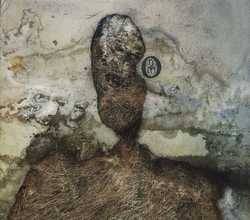
 Negura Bunget : Om
Negura Bunget : Om









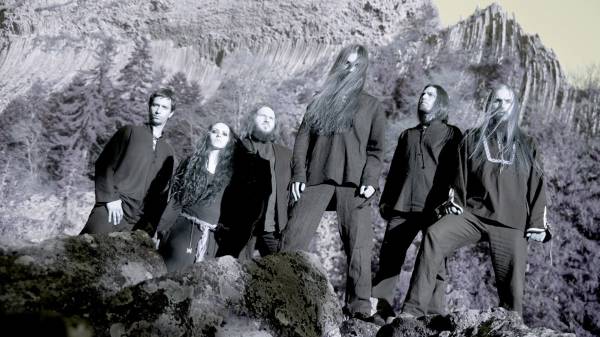


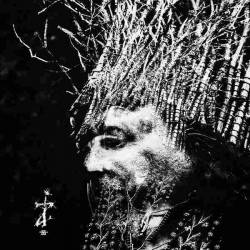

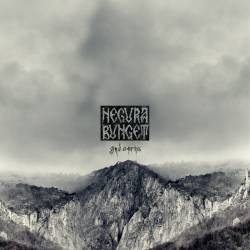
/Focul Viu (Live).jpg)
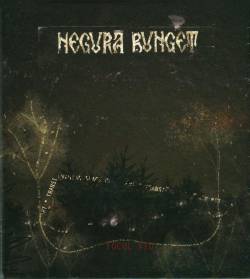
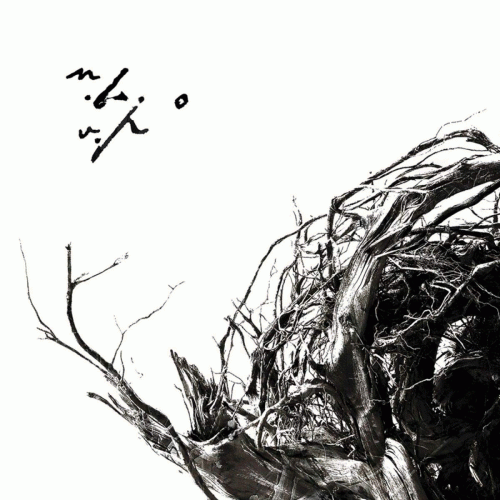
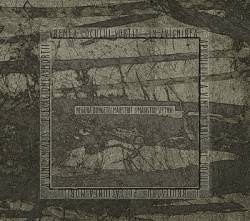
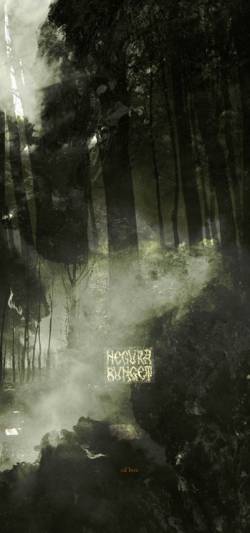
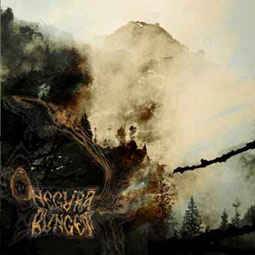
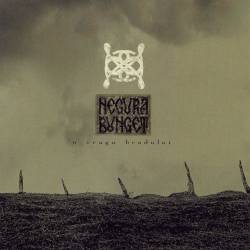
Вы должны войти в систему, чтобы добавить комментарий